|
Books Should Be Free Loyal Books Free Public Domain Audiobooks & eBook Downloads |
|
|
Books Should Be Free Loyal Books Free Public Domain Audiobooks & eBook Downloads |
|
Essay/Short Nonfiction |
|---|
|
Book type:
Sort by:
View by:
|
By: Thomas Browne | |
|---|---|
 Religio Medici and Hydriotaphia
Religio Medici and Hydriotaphia
Religio Medici (The Religion of a Doctor) sets out Sir Thomas Browne's spiritual testament as well as being an early psychological self-portrait. In its day, the book was a European best-seller. It was published in 1643 by the newly-qualified physician, and its unorthodox views placed it swiftly upon the Papal Index Librorum Prohibitorum in 1645. Although predominantly concerned with Christian faith, the Religio also meanders into digressions upon alchemy, hermetic philosophy, astrology, and physiognomy... | |
By: Walter W. Bryant (1865-1923) | |
|---|---|
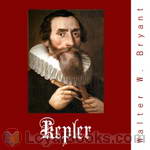 Kepler
Kepler
This biography of Johannes Kepler begins with an account of what the world of astronomy was like before his time, then proceeds to a look at his early years. Two chapters deal with his working relationship with Tycho Brahe. These are followed by a look at Kepler's laws and his last years. | |
By: Aubertine Woodward Moore (1841-1929) | |
|---|---|
 For Every Music Lover
For Every Music Lover
A series of essays for music lovers, covering many topics. From music appreciation, to violin and symphony, music education, to piano and, in fact, the very origins of music, there is sure to be something for everyone. | |
By: Various | |
|---|---|
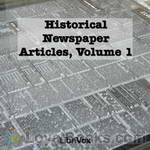 Historical Newspaper Articles
Historical Newspaper Articles
Public Domain newspaper articles in the US span a period of nearly two and a half centuries. Subjects, styles, period, publisher, and length vary greatly. This collection is a sampling of twenty such articles including one from the Journal de Paris. | |
By: Unknown | |
|---|---|
 African-American Collection, July 2007
African-American Collection, July 2007
This collection recognizes Black History Month, February 2007. Two excellent resources for public domain African American writing are African American Writers (Bookshelf) and The Book of American Negro Poetry, edited by James Weldon Johnson. Johnson’s collection inspired the Harlem Renaissance generation to establish a firm African-American literary tradition in the United States. | |
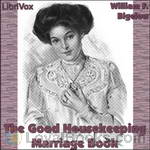 The Good Housekeeping Marriage Book
The Good Housekeeping Marriage Book
A collection of articles from Good Housekeeping magazine, The Good Housekeeping Marriage Book focuses on the subject of marriage. With instructions and advice from courtship to raising children, this collection aims to assist those with questions and concerns surrounding marriage and the ensuing relationship. Published in 1938. | |
By: Various | |
|---|---|
 U.S. Historical Documents
U.S. Historical Documents
The Articles of Confederation: On November 15th, 1777 The Articles of Confederation became the first constitution of the United States, though not yet ratified by the thirteen original colonies. Ratification of the Articles took place almost three and a half years later on March 1st, 1781. The purpose of the articles was to create a confederation of sovereign states with a weak central government; thus allowing state governments to wield most of the power. It wasn’t long before the need for a stronger federal government was realized which led to the Articles being replaced by the United States Constitution... | |
 Local Color Collection
Local Color Collection
In this celebration of diversity, learn about the myriad histories and cultures behind our volunteers. | |
By: Unknown | |
|---|---|
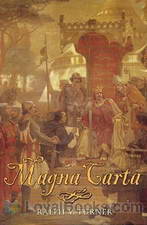 Magna Carta
Magna Carta
The original document is in Latin so this can only be a fairly rough approximation of the actual content. The text used is the first version in the Gutenberg collection. – Magna Carta is the most significant early influence on the long historical process that has led to the rule of constitutional law today. Magna Carta was originally created because of disagreements between the Pope, King John and his English barons over the rights of the King. Magna Carta required the king to renounce certain rights and respect certain legal procedures and to accept that the will of the king could be bound by law. | |
 Eighteenth Century Poetry and Prose Collection
Eighteenth Century Poetry and Prose Collection
A collection of 48 prose and poetry selections written principally in the 18th Century. These works of world literature are written in the English language or are in English translation. | |
 Insomnia Collection
Insomnia Collection
Soporific dullness is in the ear of the listener, and what’s tedium incarnate to one person will be another person’s passion and delight. However, it is hoped that at least one from the range of topics here presented will lull the busy mind to a state of sweet sleep. Introduction by Cori Samuel. | |
By: Charles Dickens (1812-1870) | |
|---|---|
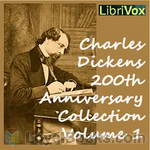 Charles Dickens 200th Anniversary Collection Vol. 1
Charles Dickens 200th Anniversary Collection Vol. 1
The Charles Dickens 200th Anniversary Collection comprises short works - fiction, essays, poetry, letters, magazine articles and speeches - and each volume will be a pot pourri of all genres and periods of his writing. This first volume is released on Dickens' 200th birthday, February 7th 2012. Further volumes will follow during the anniversary year.Volume 1 includes short stories including, amongst others, The Holly Tree, the first part of Holiday Romance and three pieces from Mugby Junction.Some... | |
By: Unknown | |
|---|---|
 British & American Periodical Articles 1852-1905
British & American Periodical Articles 1852-1905
A dozen assorted articles from British and American periodicals, including The Atlantic Monthly, Punch, The Chicago Record-Herald, Chambers’s Edinburgh Journal, Lippincott’s Magazine of Popular Literature and Science, The Library, St. Nicholas, American Missionary, The Great Events by Famous Historians, and The Continental Monthly. | |
By: Plato (424/423 BC - 348/347 BC) | |
|---|---|
 Apology
Apology
The Apology of Socrates is Plato's version of the speech given by Socrates as he unsuccessfully defended himself in 399 BC against the charges of "corrupting the young, and by not believing in the gods in whom the city believes, but in other daimonia that are novel" (24b). "Apology" here has its earlier meaning (now usually expressed by the word "apologia") of speaking in defense of a cause or of one's beliefs or actions (from the Ancient Greek ἀπολογία). | |
By: Various | |
|---|---|
 Girl Scout Collection
Girl Scout Collection
These articles, pamphlets, and stories relating to the Girls Scouts of America touch on the history, activities, ideals, and traditions of this remarkable girls' organization. Though some of the articles appear redundant, they were selected to represent a contemporary view spanning five years of the organization's early popularity (1917-1921). Of significance are the detailed descriptions of Girl Scout involvement in war work during what is now known as World War I. Girl Scouts were prepared through their training for merit badges to be independent, resourceful, reliable, and helpful... | |
 Collection: Tales of the Cities
Collection: Tales of the Cities
This is a collection of city stories, fiction or non-fiction, in English and published before 1923. Contributions have been chosen by the reader himself. | |
By: Anonymous | |
|---|---|
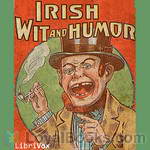 Irish Wit and Humor
Irish Wit and Humor
Excerpted anecdotes from the biographies of Swift, Curran, O'Leary and O'Connell, relating humorous snippets of politics in 18th and 19th century Ireland. For some these may be poignant in addition to being humorous and for others they may be humorous in addition to being poignant. ( | |
By: Charles W. Diffin (1884-1966) | |
|---|---|
 Dark Moon
Dark Moon
Mysterious, dark, out of the unknown deep comes a new satellite to lure three courageous Earthlings on to strange adventures. | |
By: Lloyd Eshbach (1910-2003) | |
|---|---|
 The Gray Plague
The Gray Plague
End of the world sci-fi tale borrows heavily from H.G. Wells' WOTW and In The Days of the Comet -- looks like fun ! | |
By: A. A. Milne (1882-1956) | |
|---|---|
 The Sunny Side
The Sunny Side
The Sunny Side is a collection of short stories and essays by A. A. Milne. Though Milne is best known for his classic children's books, especially Winnie The Pooh, he also wrote extensively for adults, most notably in Punch, to which he was a contributor and later Assistant Editor. The Sunny Side collects his columns for Punch, which include poems, essays and short stories, from 1912 to 1920. Wry, often satirical and always amusingly written, these pieces poke fun at topics from writing plays to lying about birdwatching. They vary greatly in length so there is something for everyone. | |
By: Various | |
|---|---|
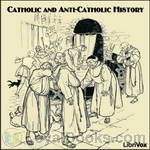 Catholic and Anti-Catholic History
Catholic and Anti-Catholic History
G.K. Chesterton and James Walsh join Hilaire Belloc in an energetic rollout of the means by which history becomes propaganda, to the damage, not only to truth, but to the human soul. | |
By: Arnold Bennett (1867-1931) | |
|---|---|
 Self and Self-management: Essays about Existing
Self and Self-management: Essays about Existing
Bennett's essays always provide food for thought and bring a wry smile to the lips. Human nature, it appears, changes little over the ages, and Bennett's writing stands the test of time, though in the case of some of the essays in this eclectic collection, it is well to remember that they were written at the time of the First World War and the fight for women's suffrage. | |
By: Saki (1870-1916) | |
|---|---|
 The Toys of Peace
The Toys of Peace
This is the fifth collection of short stories by Saki (H.H. Munro), and was published posthumously in 1923. Even so, many of the stories are quite up to the standard of those collected earlier. | |
By: William Hazlitt | |
|---|---|
 The Plain Speaker: Opinions on Books, Men, and Things
The Plain Speaker: Opinions on Books, Men, and Things
The Plain Speaker: Opinions on Books, Men, and Things is a posthumous collection of essays by William Hazlitt, organized by his grandson, William Carew Hazlitt. The book contains some of Hazlitt's more famous essays that hadn't been previously published in book format. | |
By: Various | |
|---|---|
 The Night Side of New York
The Night Side of New York
This nonfiction collection of sketches, by "members of the New York press," takes the reader on a tour of 1866 New York City after dark, with stops along the way to vividly depict scenes ranging from the splendid to the squalid - but focusing largely on the latter! | |
By: David Hilbert (1862-1943) | |
|---|---|
 Mathematical Problems
Mathematical Problems
Lecture delivered before the International Congress of Mathematicians at Paris in 1900 and subsequently published in the Bulletin of the American Mathematical Society Vol. 8 (1902), 479-481. | |
By: G. K. Chesterton (1874-1936) | |
|---|---|
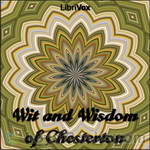 Wit and Wisdom of Chesterton
Wit and Wisdom of Chesterton
In this collection, Bevis Hillier has put together some of Chesterton's essays in "The Defandant", "Varied Types" and "Tremendous Trifles". These 12 pieces were chosen to giving a peek into the margins of Chesterton's work and give a sense of the distinctive flavor of his mind. They were also chosen with an eye to showing what a complex and fascinating character he was. | |
By: Mark Twain | |
|---|---|
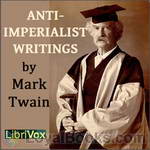 Anti-imperialist writings
Anti-imperialist writings
This audiobook is a collection of Mark Twain's anti-imperialist writings (newspaper articles, interviews, speeches, letters, essays and pamphlets). | |
By: A. A. Milne (1882-1956) | |
|---|---|
 Once a Week
Once a Week
A collection of short stories by famed Winnie the Pooh author, A.A. Milne. This charmingly humorous work from Milne's earlier writing period was first published in Punch magazine. | |
By: John Stuart Mill (1806-1873) | |
|---|---|
 Three Essays on Religion
Three Essays on Religion
The Three Essays on Religion were written at different times during Mill's life, and only published after his death. The first two, 'Nature' and 'The Utility of Religion' date from the 1850s - the period between the publication of 'The Principles of Political Economy' and 'On Liberty'. The third longer essay, 'Theism' was written between 1868 and 1870. The three essays were published posthumously in 1874. | |
By: Harl Vincent (1893-1968) | |
|---|---|
 Astounding Stories 02, February 1930
Astounding Stories 02, February 1930
This is the second issue of the classic science fiction Astounding Magazine. It contains the finale of The Beetle Horde by Victor Rousseau, as well as stories by Harl Vincent, Charles Willard Diffin, Hugh B. Cave, Sophie Wenzel Ellis, Sterner St. Paul, Anthony Pelcher and Captain S. P. Meek. | |
By: Unknown | |
|---|---|
 The Drama: A Quarterly Review
The Drama: A Quarterly Review
This is a collection of theatrical essays from the American quarterly The Drama, including six non-fiction works -- 3 profiles: Schnitzler, Andreyev, and O'Neill, and 3 articles: Characterization vs Situation, The Actor in England, & The Evolution of The Actor. | |